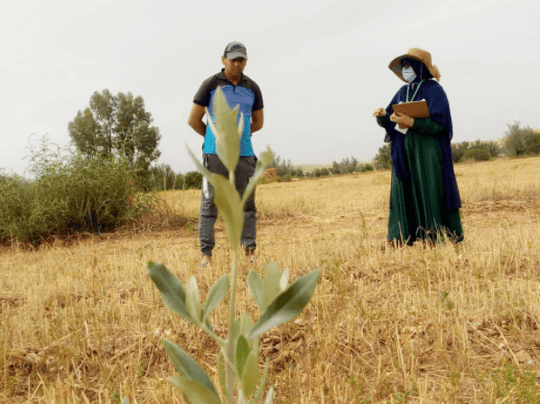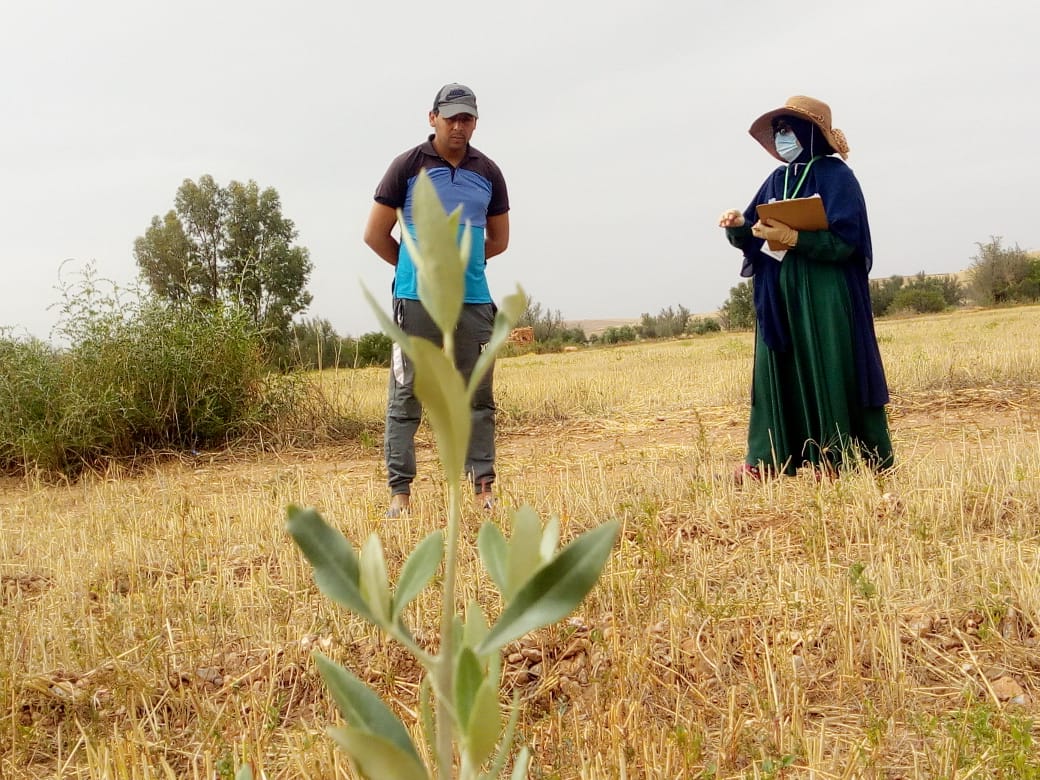Community Tree Planting Will Lead Morocco Into the Future

Webster Hill
HAF-UVa Intern

The terrain of Morocco provides the opportunity to achieve tremendous agricultural and environmental results. The High Atlas Foundation (HAF) plants fruit trees across the country with rural communities. In 2021, HAF-community collaboration has planted 700,000 trees of nine fruit varieties, with 6,000 farming families in 39 provinces. In addition, 1.6 million seeds in 13 nurseries located in eight provinces have also been planted.
Rural communities are transitioning away from traditional crops such as barley and corn and are placing more emphasis on planting fruit trees and taking advantage of medicinal herbs and spices. The work being done by HAF is driven by the people themselves, which is why community tree planting has been a priority project.
By involving community members through the participatory approach, HAF assists Moroccan families in generating greater revenue and food sources, but also propel themselves into a sustainable future. With that said, community tree planting has many other benefits that will only further the sustainable development Morocco seeks to achieve.
The first and most evident benefit of tree planting is its environmental impact. Climate change has gained traction in recent years as an issue that will be irreversible if people continue with their harmful practices. Mass tree planting is one way in which climate change can be combated as it has the ability to absorb solar energy and reduce air temperature which has been steadily rising. A key factor in climate change is greenhouse gases which are released through activities such as driving a vehicle, operating certain equipment, and the burning of fossil fuels.
Luckily, trees are adept at reducing the amount of CO2 and harmful toxins that exist in the air. These are the two main ways tree planting can be beneficial to the environment – but it also assists in the improvement of soil and water quality, another major issue that Morocco faces. Ultimately, tree planting is an activity that has undeniable environmental benefits which should be taken into account by Morocco as well as other nations.

It is important to acknowledge the social benefits of community tree planting. Planting trees with other members of the community reinforces a sense of belonging and a degree of empowerment that radiates beyond environmental responsibility. This increases social capital and can lead to improvements in other areas of Moroccan society such as education, employment, and infrastructure.
It has been shown that when people are included and participate in activities such as this, they are more likely to branch out and provide better insight to their needs, which is a tremendous asset in development. Overall, the value of community is instilled in those who are asked to come together and perform a task that will provide positive results for the greater good.
Community tree planting has proven to be beneficial to human health. The World Health Organization has tagged Morocco as moderately unsafe on regard to air quality, as its mean particulate matter concentration is approximately three times higher than the globally accepted average. Poor air quality correlates with respiratory and chronic illnesses such as asthma, which can be fatal. The presence of more green spaces, which includes tree nurseries, decreases the prevalence of mental health issues. Community tree planting can also contribute to the solution of issues exacerbated by the COVID-19 pandemic, such isolation and lack of human interaction.
Depression and anxiety are diseases that are known to be curbed by the access to green spaces, as well as the participation in activities in such areas. Some have cited the increased appearance of certain settings as a result of tree planting to be a motivating factor in their improved wellbeing. This bodes well for the provinces of Morocco that have been working with HAF, and it can inspire other regions in Morocco to pursue the same course of action.
In conclusion, community tree planting has benefits that affect various factors of human life. For Moroccans, the project will lead to improved social capital and environmental conditions, as well as the potential to increase the biodiversity of the nation. Sustainable development is the primary mission of HAF, and community tree planting exists as a catalyst for Morocco’s future success. As of right now, the plan is to grow 10 million fruit trees by 2025. Surely, the future is bright for Morocco as it is on the verge of a beautiful breakthrough.
Webster Hill is an intern at the High Atlas Foundation and a student at the University of Virginia.